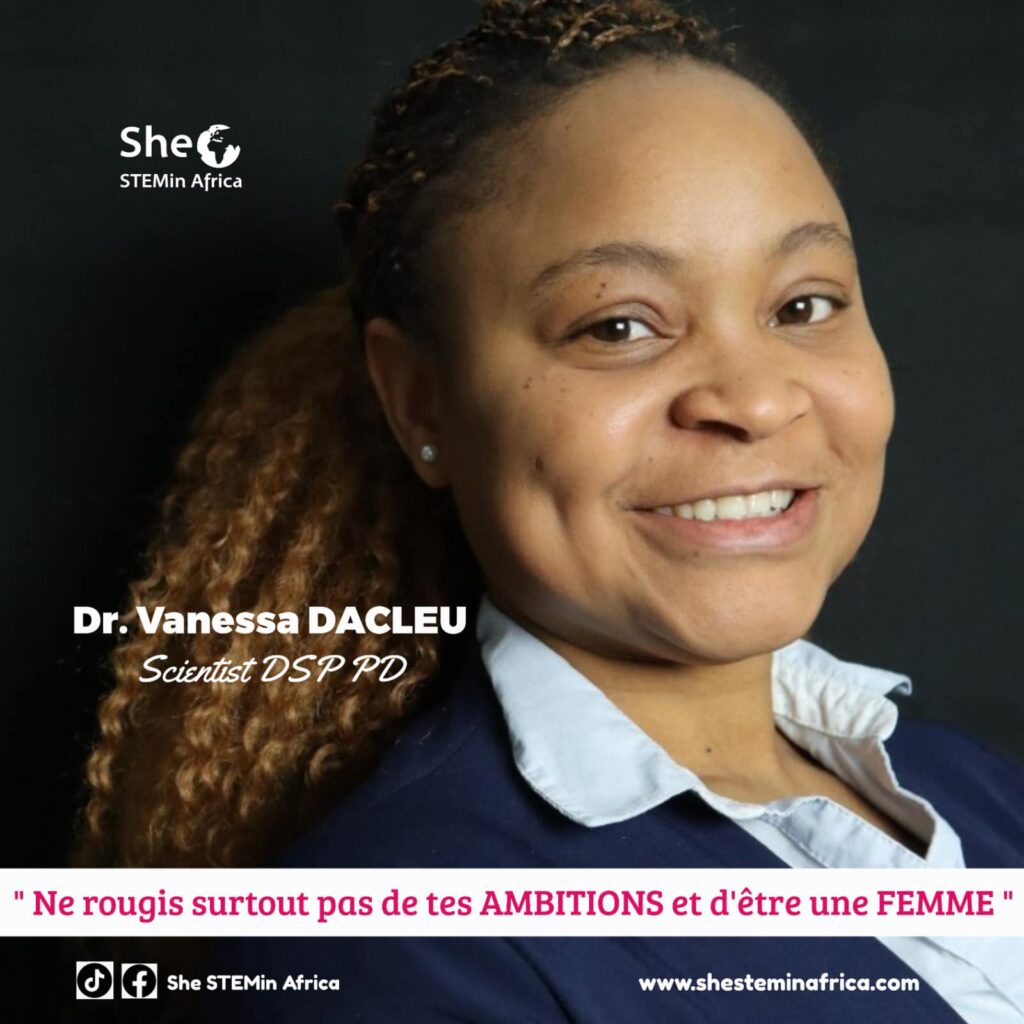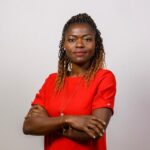✨Our "Inspiring African Women Scientists" rubric kicks off today with 𝐃𝐫. 𝐕𝐚𝐧𝐞𝐬𝐬𝐚 𝐃𝐀𝐂𝐋𝐄𝐔 𝐒𝐈𝐄𝐖𝐄.

My academic and professional background in STEM
I’m Vanessa Dacleu Siewe. After a Scientific High-School Diploma, I first headed towards Animal Biology, where I obtained a Bachelor’s degree at the University of Caen (France). I then went on to a Master’s degree, where I did a first year in Molecular Biology at the University of Strasbourg, then a second year immersed in Germany in a structural biology laboratory. The project I worked on during my Masters was binational (Franco-German). It was a project I had initiated between two laboratories. After that, the PhD cycle seemed an obvious choice, more intending to continue the research I’d begun during the master’s degree.
My motivation for pursuing a STEM career
For the moment at least, my career is defined in two parts. The first is academic, following on from my doctorate. I worked for two years as a post-doctoral researcher in a laboratory in Strasbourg, where I perfected my molecular and structural biology techniques. Although I learned a great deal from this experience, I felt a little distanced from the ultimate goal of science, which in my view is to serve patients. For this reason, I redirected myself into the biopharmaceutical world where I currently hold a position of Biotechnologist in process development.
My most exciting advances
The most impressive advance in my current field, biotechnology, is the speed of processes and automation. Processes that a few years ago required the 100% presence of the operator to handle manually are increasingly giving way to the use of robots which are programmed to operate 24 hours a day, thus considerably increasing productivity while reducing deviations which for many (but not all) were the fault of the operator.
Challenges I've faced as a woman in STEM and how I've overcome them
Personally, the main challenge I’ve faced is motherhood. But I think this is the case for many women regardless of their field or background. For example, I remember that during my years as a post-doctoral student, I was told by one of my supervisors (who was herself a mother) that « it was a favor to have been kept on in my position even though I had had two pregnancies during that period… ».
Right now, the major challenge is to combine my professional life with my life as a mother (We invite you to read our article on this crucial subject by clicking HERE). I just try to decouple these two roles completely. When my work day is done, I take off the « Scientist » hat and put on the mom hat, leaving the work to the work as well physically, mentally, and psychologically. I’m not saying it’s easy or that it’s possible to do this every day, but by defining this as « normal », we manage to get at least 60% of things right.
My predictions for areas of significant growth
All areas are bound to grow significantly, or at least they should. Above all, we mustn’t fall into the trap of thinking that some areas are more important than others. I think that’s where a lot of our backwardness (in Africa) comes from. For example, we don’t emphasize or tend to neglect fields such as Biology, Biochemistry, Biotechnology… in general, and yet the drugs we consume and which in some cases poison us (because of the lack of control authorities) are produced or derived from these fields.
My advice to a young woman considering a STEM career
Above all, don’t be ashamed of your ambitions and of being a woman.
As a young woman, don’t be afraid or ashamed to have scientific ambitions, no matter what society says or thinks. If you want to have a Master’s degree, do a PhD, or become a teacher, entrepreneur, etc., then just tell yourself that you have the right to dream big, go for it, and give yourself the means to succeed. Don’t be afraid to wear different hats, because you can be whoever you want to be professionally and have a beautiful family (husband and children).
#inspiringafricanwomenscientists #womeninstem #biotechnologist #processdevelopment #shesteminafrica #girlpower

Posted by Dr. Pulchérie Matsodoum Nguemté
Founder of She STEMin Africa

Leave a Reply